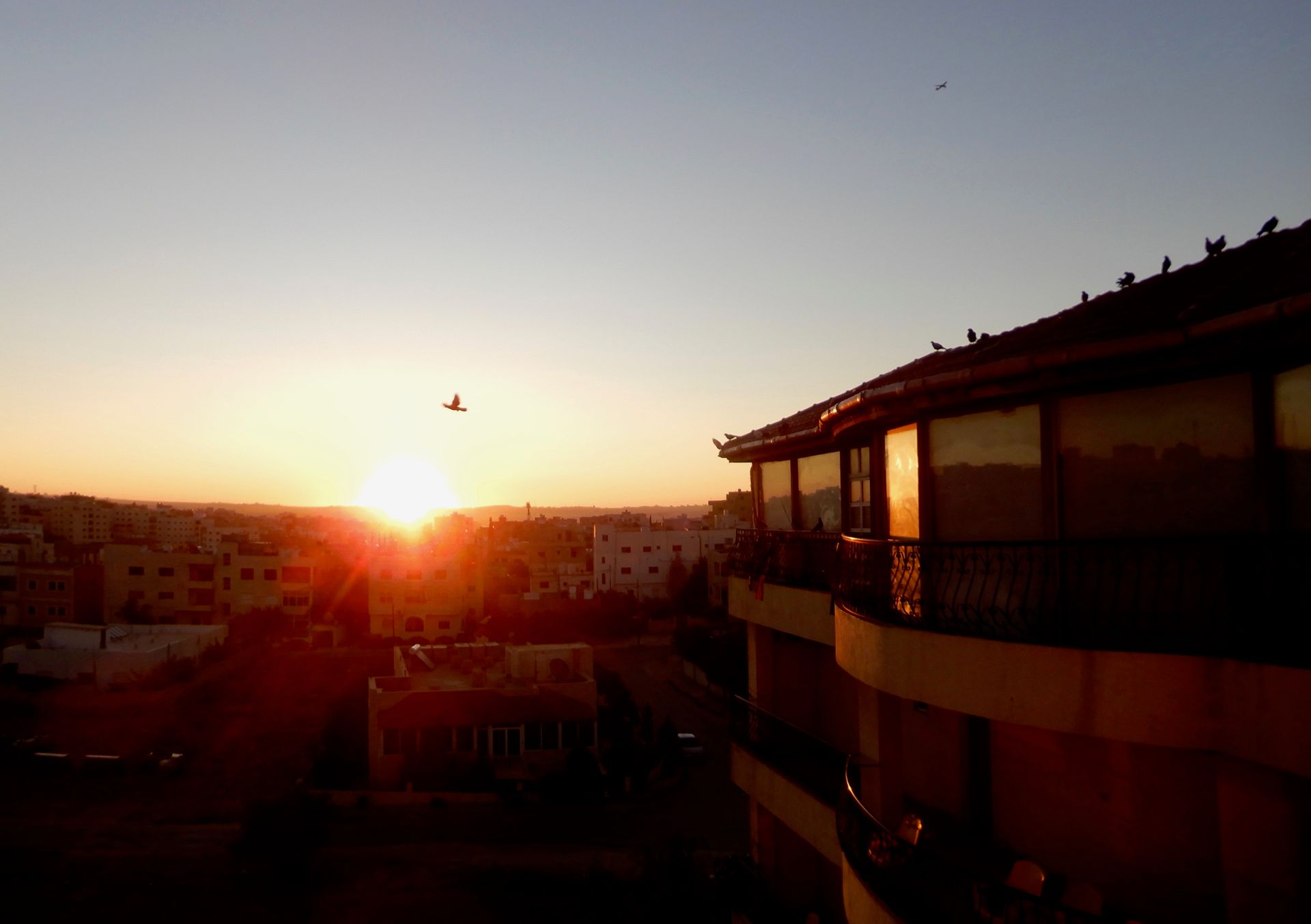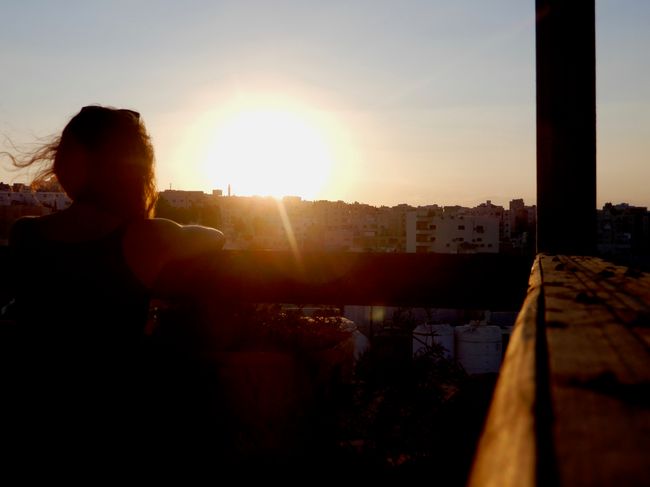Between March & Service trips
ಪ್ರಕಟಿಸಲಾಗಿದೆ: 04.02.2020
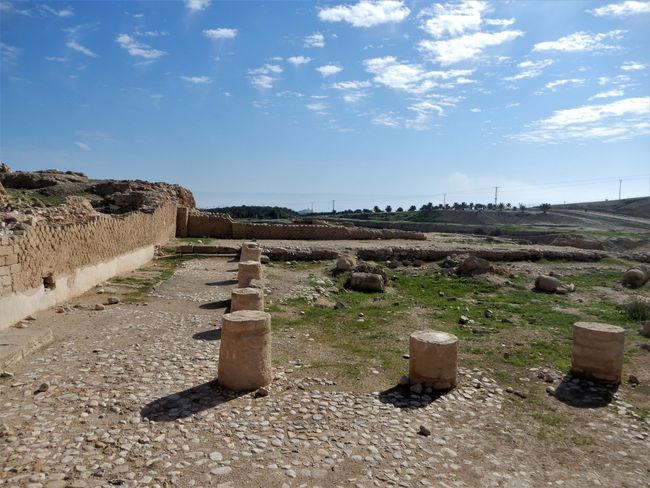
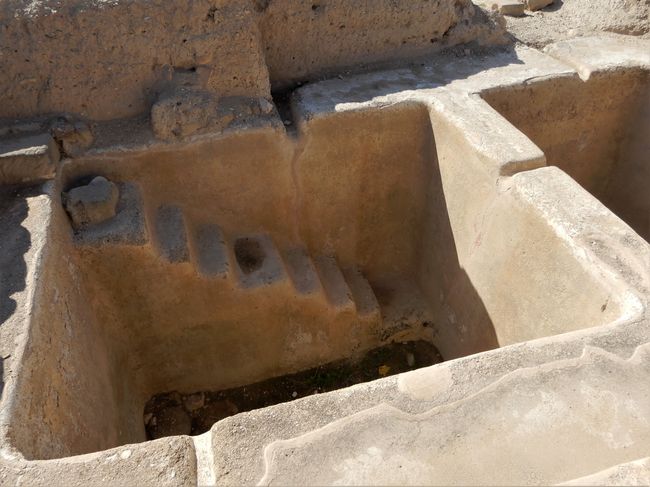
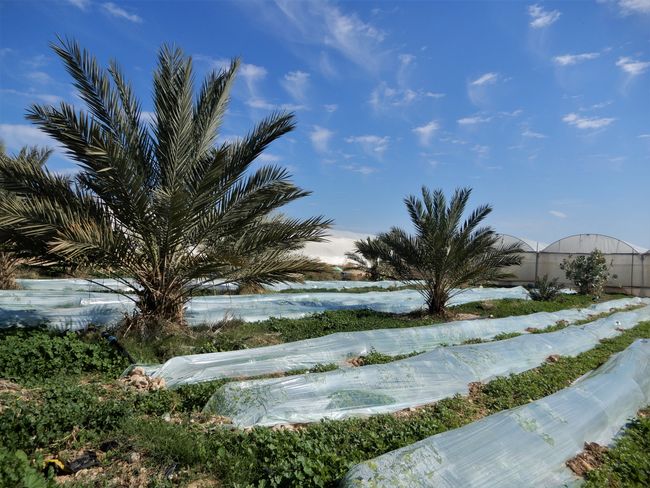
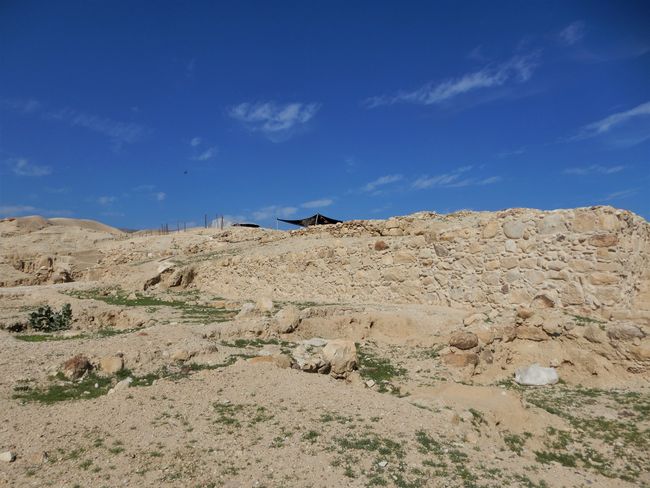
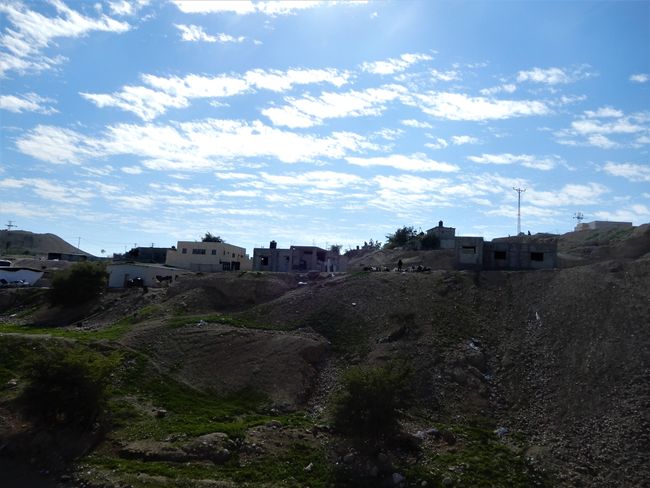
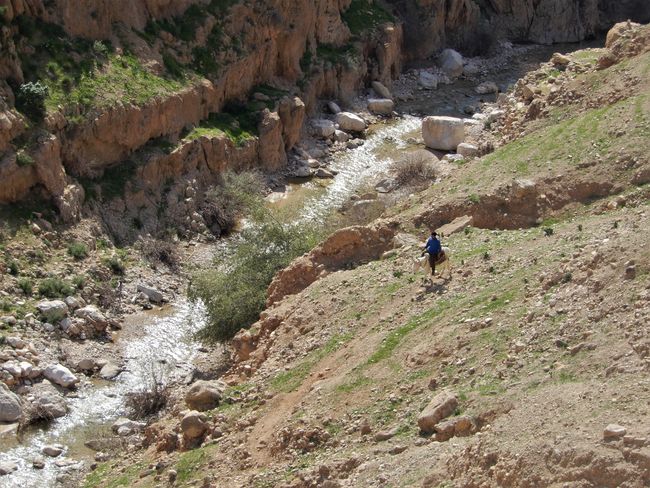
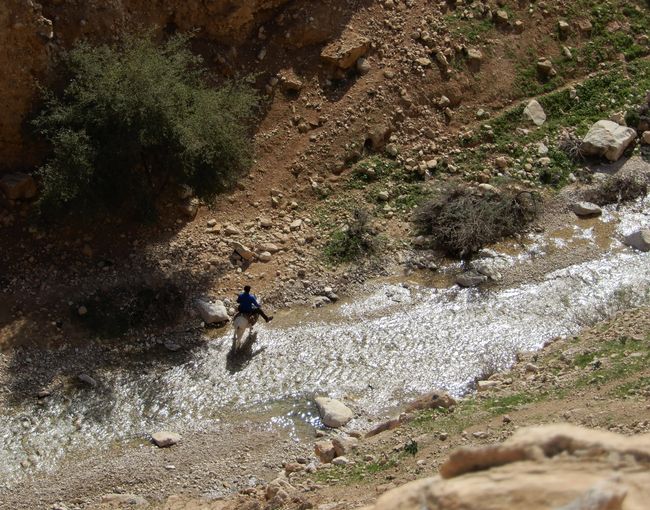
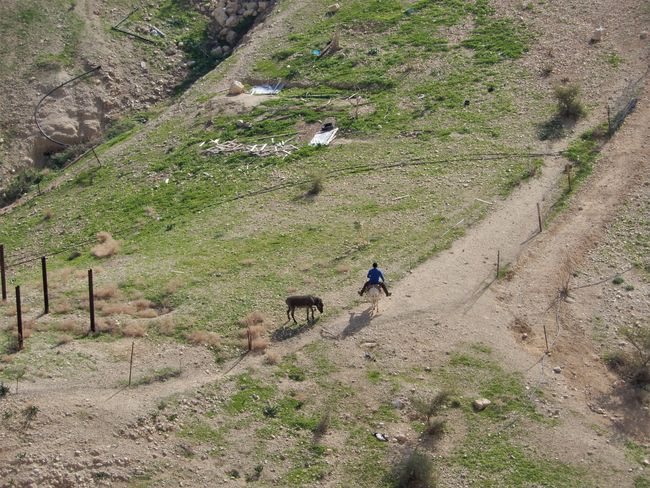
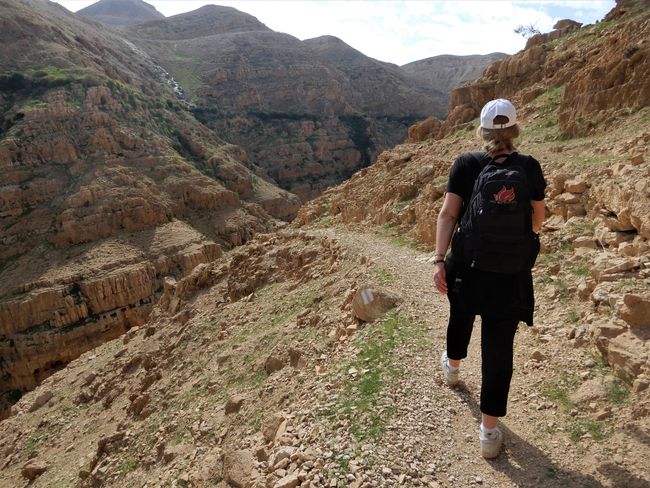
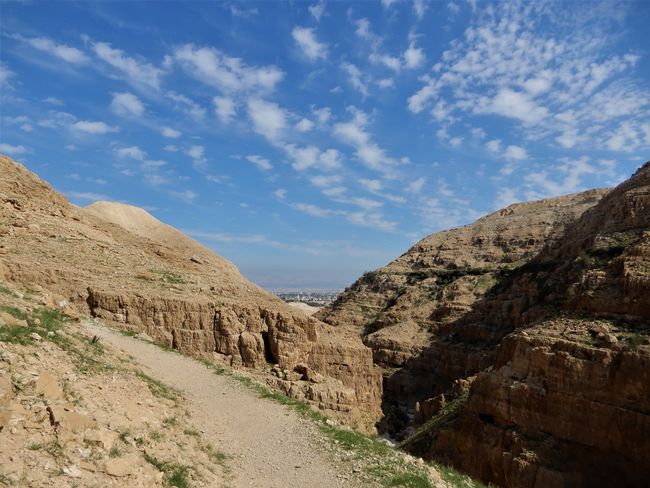
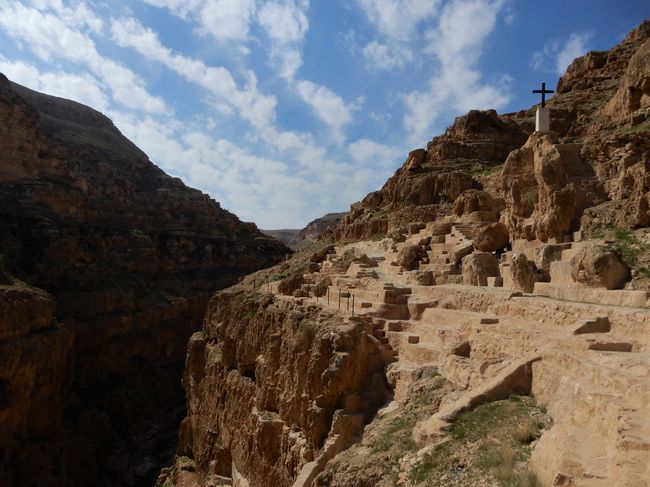
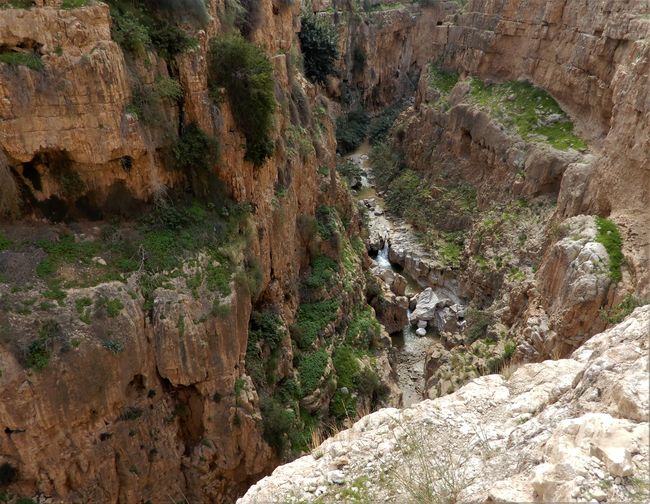
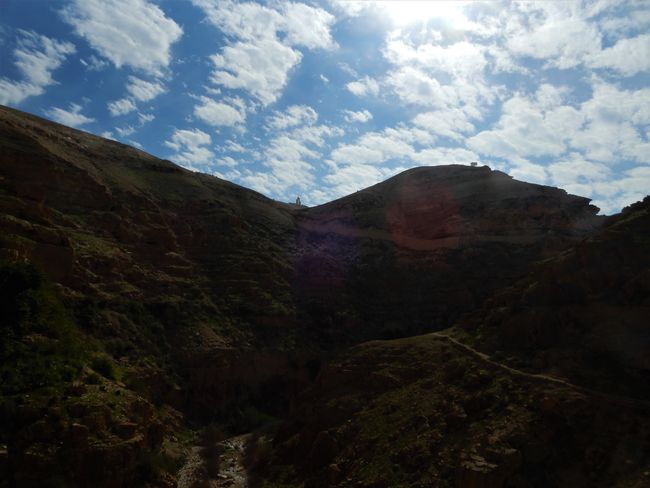
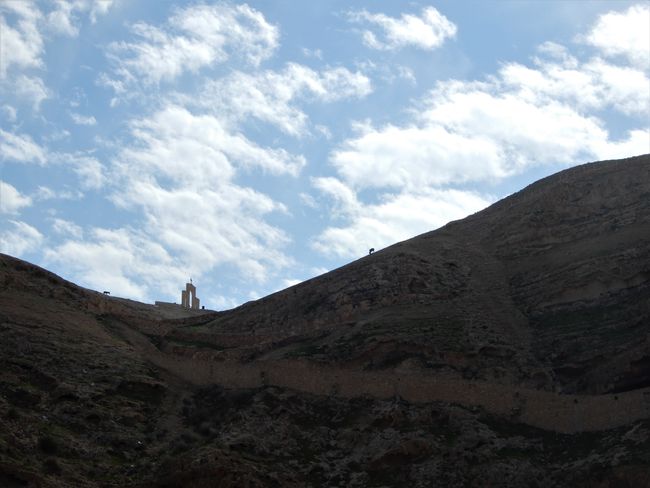
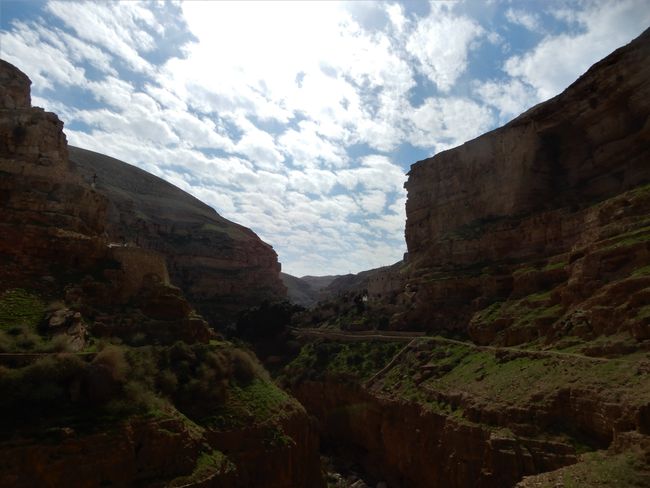
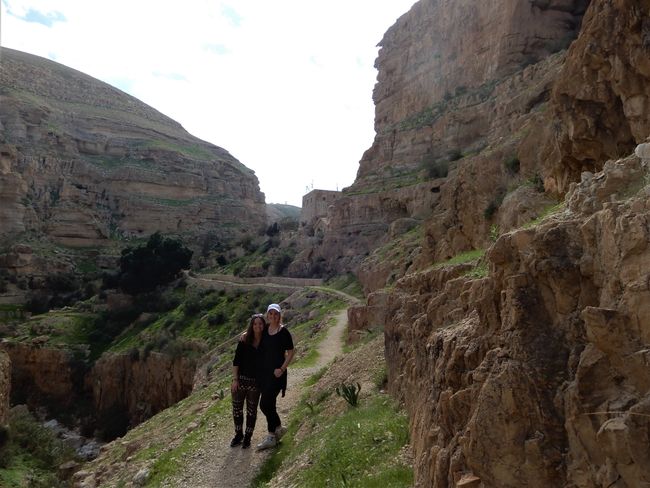
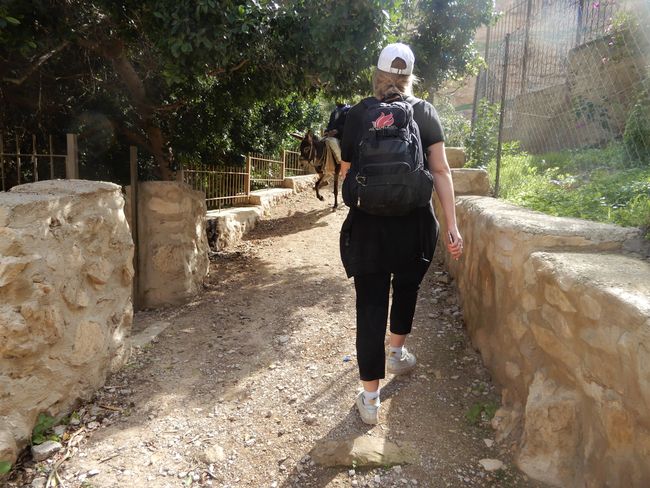
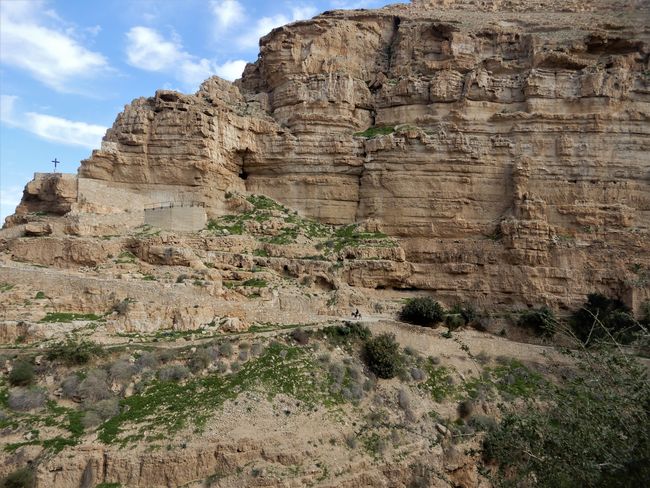
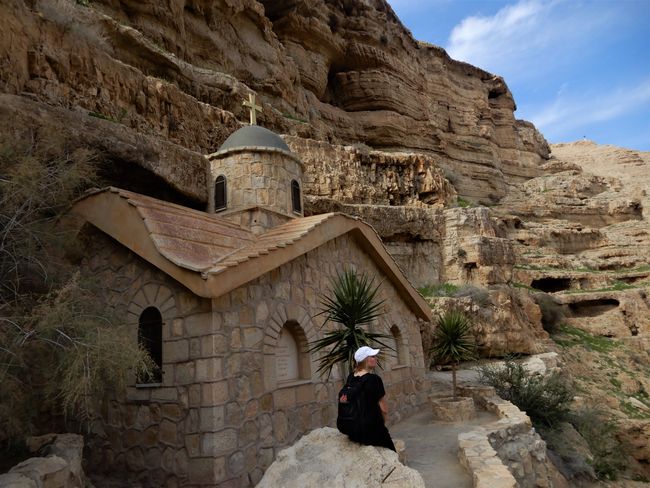
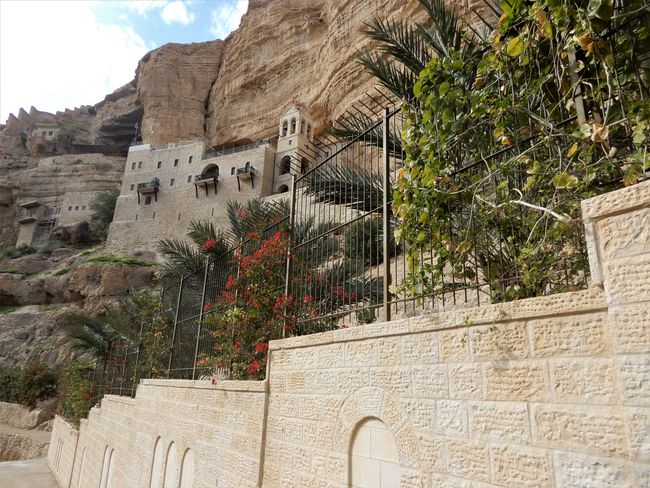
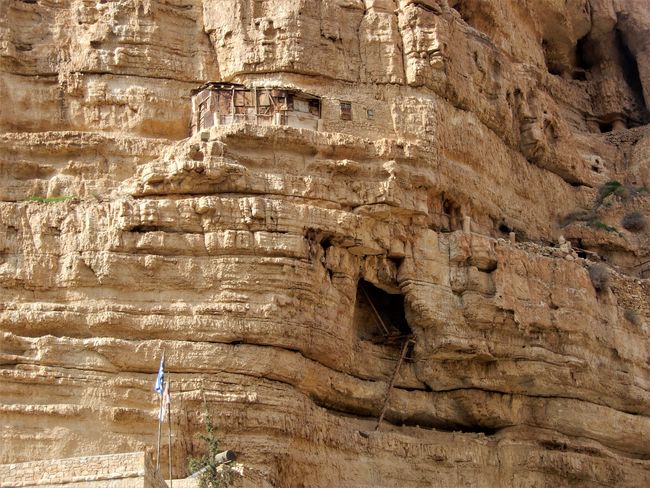
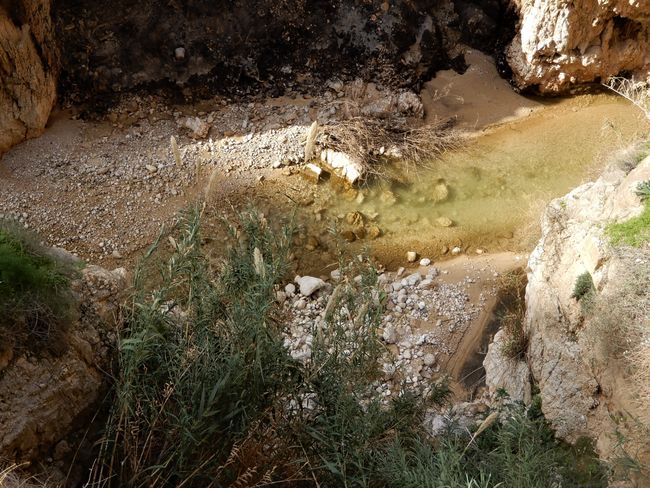
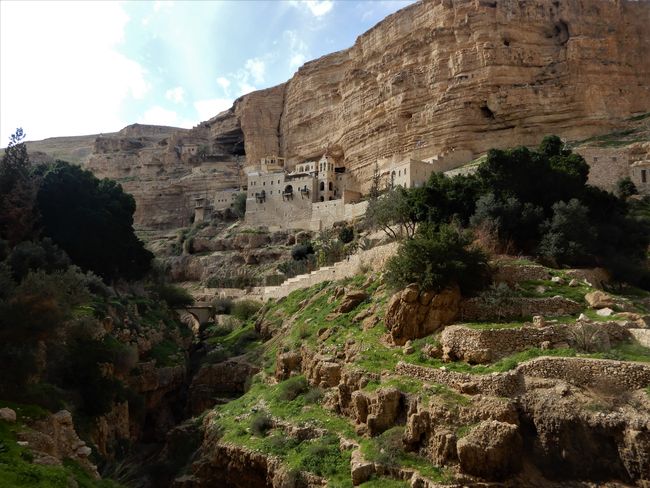
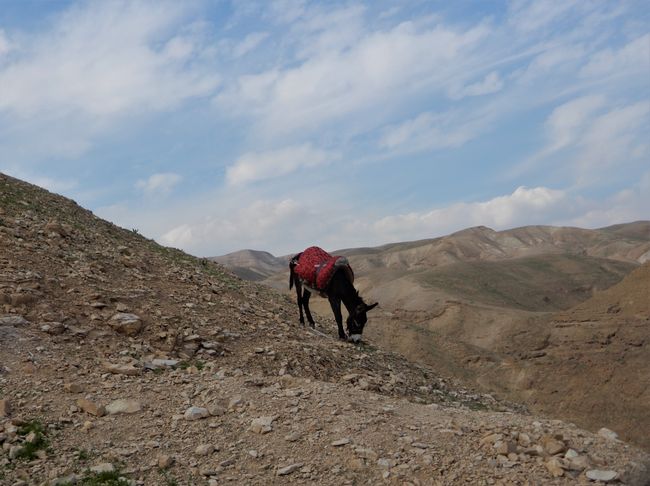
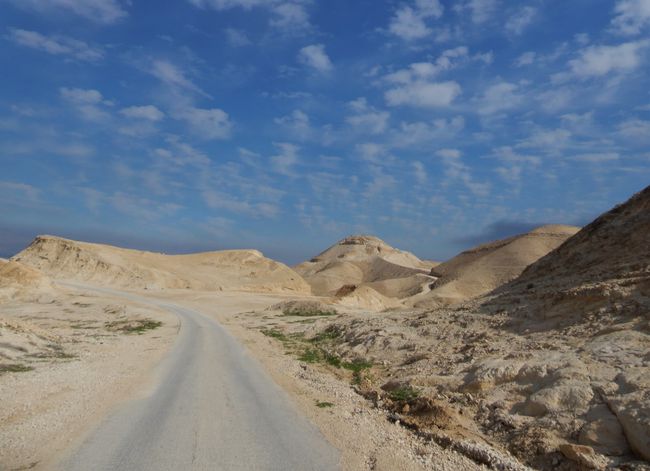
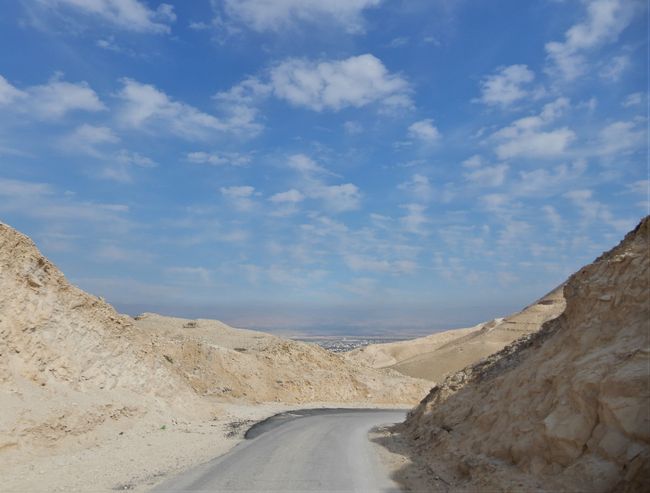
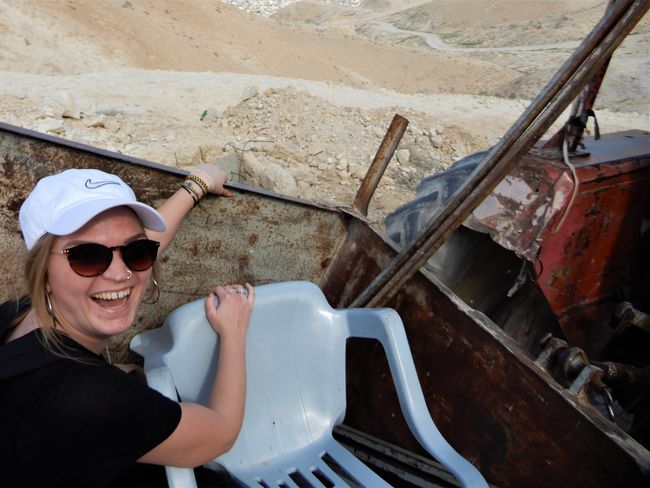
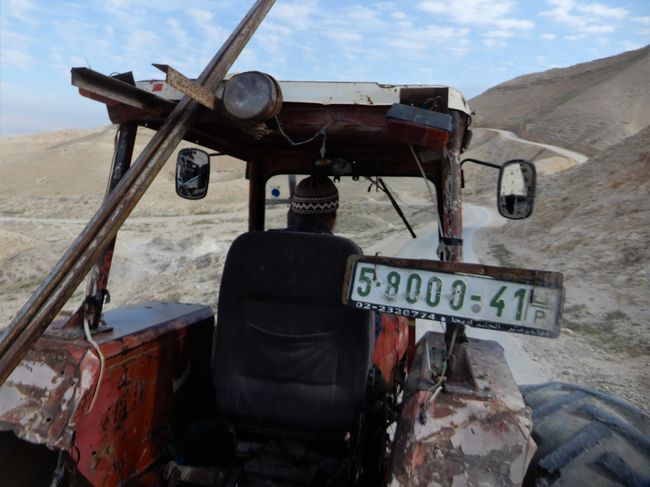
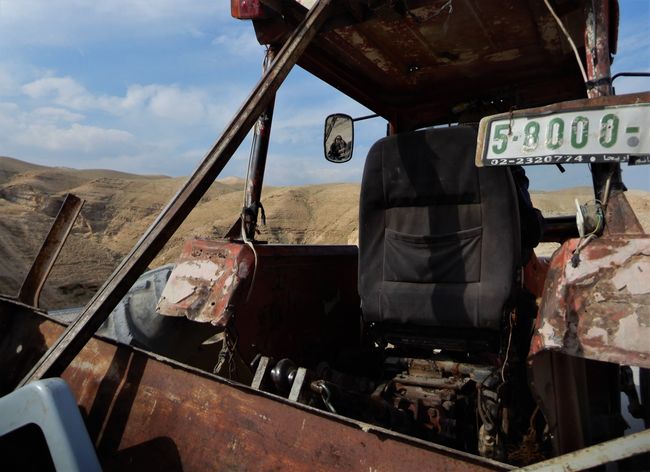
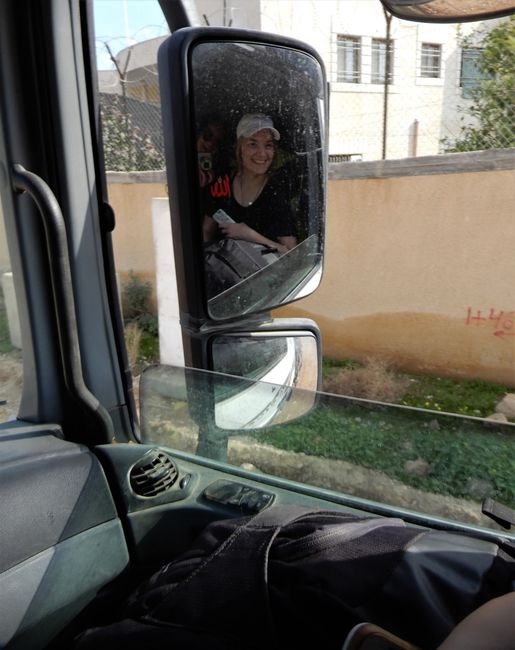
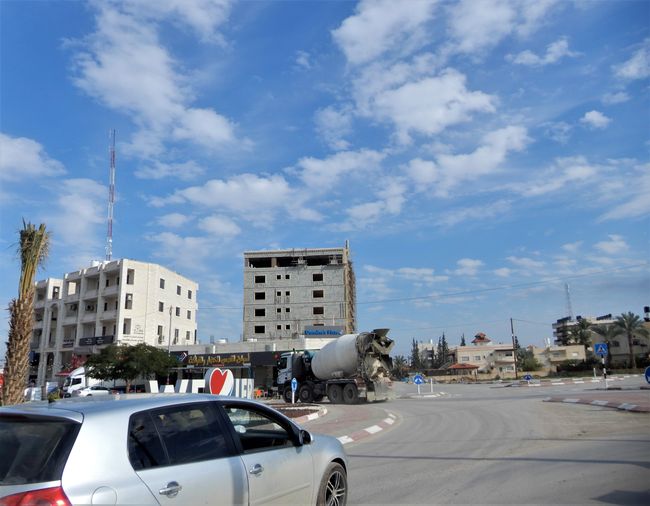
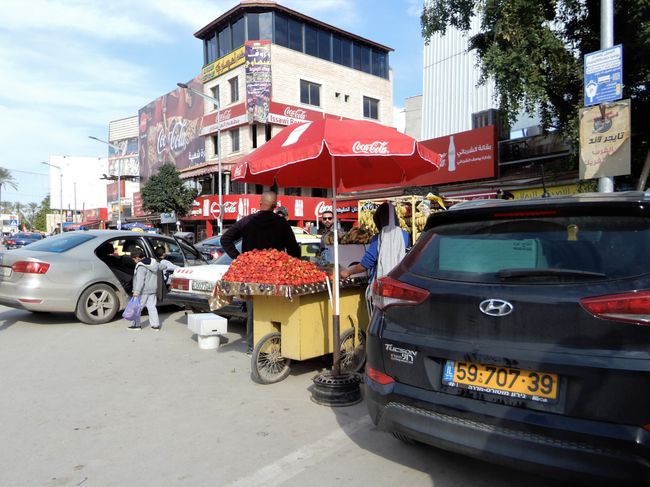
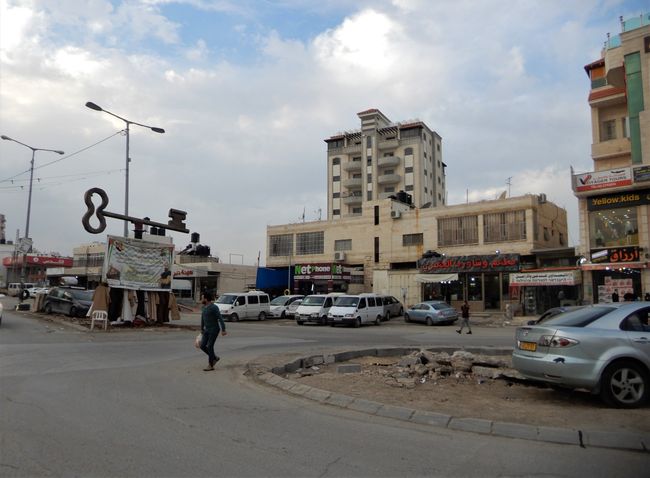
ಸುದ್ದಿಪತ್ರಕ್ಕೆ ಚಂದಾದಾರರಾಗಿ
Monday, February 3rd
8:30 am. Today we wanted to get up earlier to have a look at St. George's Monastery in the mountains near Jericho before continuing our journey. We thought that Waleed might be able to take us a bit closer with his car so that we can make the most of the morning, but by the time we're ready to go, it's already almost 10, and Waleed is nowhere to be seen. Through his daughter, who lives in the same house, we contact him, and he picks us up with his car and takes us to his office in the city center.
Now we're considering how best to get to the hiking trail towards the Monastery. Hitchhiking would still be an option. But Waleed advises against it. The problem is that the direct route is closed. And the detour from the other side is too far. After some back and forth, he offers to drive us around for 10 shekels per person. It would take about 40 minutes. Then we could walk back to Jericho from there and save some time. Alright then. That's the plan.
We're already there after less than 5 minutes of driving. Lea and I are a bit confused. We are barely outside Jericho, on a dirt road towards the mountain range. We also don't quite understand where the closed road is supposed to be here, and where exactly the Monastery is. Waleed briefly and awkwardly explains to us where the area of Herod's Palace is located, another attraction that we can visit on the way to the Monastery, then he drives back to the city.
We're still confused, but we decide to just start walking. The ruins of Herod's Palace are the remains of a huge palace complex built by Herod the Great in the last century BC. What must have been gigantic back then (huge towers, bathhouse, various pools, large courtyards and storage rooms) can now only be recognized with a lot of imagination. We walk across the entire site and are then unsure of where to go from here to the Monastery. Waleed's directions were not really helpful in hindsight. Plus, we're sure that he didn't take us to where he promised - according to Google Maps, we're still almost 2 hours' walk away from the Monastery. So we decide to ask the people we saw on the site.
Shortly afterwards, we're sitting under a tent with four older men, drinking the last tiny cups of coffee they offered us. They are Bedouins from Jericho who live in the neighboring village and work to preserve Herod's Palace. Even though we can't quite imagine what there is to work on at the old ruins. Since it's already necessary to seek shade under the tent during breaks in February, I don't even want to know what their work looks like in the summer. However, they are very friendly and tell us that it doesn't take much longer than an hour to get to St. George's Monastery. They also give us a usable set of directions and we start marching.
Once we reach the path at the top of the mountain, which now winds along the gorge towards the Monastery, we take a little break - we haven't had breakfast yet today. However, our snack box still has some leftovers from last night's dinner, a few slices of bread and cookies, so shortly after we can start our little hike with satisfied stomachs.
The Bedouins warned us that the narrow path along the edge of the gorge is sometimes dangerous, but it is rather a wonderful little path through the idyllic canyon, where you dive into a completely different peaceful, carefree world. The only sounds you hear here are birds singing and the sound of water from the small river down in the gorge. No soul is around, just a few crosses here and there that already indicate that you are on your way to a monastery.
The green vegetation on both sides of the gorge becomes denser at some point, as we can see the Monastery built into the rocks from a distance, and as we get closer, we also see a few people on the other side of the gorge, where there is obviously a parking lot very close to the Monastery. On the monastery grounds, a Bedouin on a donkey is already riding towards us, offering us a taxi ride on his donkey and also saying that the Monastery is already closed.
It's a bit like déjà vu from yesterday. We read that it closes at 1 o'clock, but we actually made it right on time, 10 minutes before that. We can enter the courtyard of the Monastery, but then we are actually faced with locked doors. As we read, there would have been spectacular wall paintings in the main chapel and ancient mosaic floors. Well. You can't have everything. The journey here was beautiful, and it was definitely worth it for the external view of the monastery, which is really special. So we take a short break, have a sip of water, and then turn back.
We decide to take the return route on the other side of the gorge, where we initially encounter a whole group of Bedouins offering donkey shuttles, souvenirs, and juices on the large parking lot. Then we take the road to the main street, which must be the road that Waleed told us was closed. However, nothing is closed here. We're walking right on the road. Around us, hilly sandy landscape that, together with the bright blue sky, is so dazzling that it wouldn't be bearable without sunglasses. In general, the landscape here seems as if we are moving on another planet.
At some point, we hear a motor noise behind us - an old tractor appears from behind a hill, driving down towards Jericho. Maybe he can give us a lift, Lea says. So we stand by the roadside with expectant eyes, prompting the old man on his vehicle to actually stop. He says he can take us to Jericho for 30 shekels. We wave it off. Before we have to pay, we'd rather walk the rest of the way. "Okay, for free!" He waves us to his tractor. That was a quick convincing job. There's not much space on the seats next to him, so we climb into the shovel at the back of the tractor, where he transports fruit and various other things, and bump along.
After about 10 minutes of driving, our bones are well shaken and we arrive in the small village near Jericho, where our driver lowers the shovel, raises his hand in farewell, and drives off along a dirt road. So we continue on foot to the main road, hoping that maybe someone can give us a ride to the city. And it happens faster than expected. A huge cement mixer appears behind us, which we look at expectantly again, causing him to stop as well and beckon us into his driver's cabin. We now sit high up on the gravel road, which clearly makes our new driver uncomfortable. It is certainly more than unusual to take women in this vehicle here.
When we arrive at the roundabout on the main road, he asks us to get out. As a gesture of apology, he gives us a bottle of water before driving on without us towards the city. But that's no problem. From here, it's not even a 15-minute walk to Waleed's office in the city center, where we left our large luggage in his car earlier today.
Waleed picks us up with his car on the way to the hostel. Next, we want to go to Hebron, so he takes us to the large central bus and service taxi station, where he asks the drivers about the prices. The cheap buses are no longer running today (if we can believe the taxi drivers), and the service taxis are asking for more money than we want to spend. After some endless discussion, we decide to hitchhike. It's really not difficult for us here, as we have already noticed. Plus, we're annoyed by the constant haggling over prices, knowing that we would end up paying too much in the end.
Waleed is not exactly thrilled with this idea, but he takes us to a roundabout near where hitchhiking should be possible, as he says. We also have to fend off a few service taxi drivers there, but then we wait for no more than 5 minutes before a small car stops. The driver's name is Derwisch, he commutes every day between his residence in Jerusalem and his work in Jericho, and can now give us a ride for a while.
We talk to him a bit about the political situation here and once again realize how frustrating the conflict is for the land and people. And how incomprehensible it is that now, from the United States, from the other end of the world, decisions are made about who should own which land here. He also shows us a few Jewish settlements on the hilltops that we pass by. There are 15 large settlements and more than 100 in total everywhere in the West Bank. And they are expanding rapidly, as Derwisch says. The huge settlement that now stretches all along the entire mountain range was a small village a few years ago. This rapid expansion is due in no small part to the fact that the Israeli state heavily subsidizes living in the settlements, attracting more and more people from all over the world to settle here.
Derwisch drops us off on the main road in a suburb of Jerusalem and then continues in the opposite direction. We have now completed half of our journey to Hebron and hold our hands out at the roadside. It doesn't take long for a car to stop again. It's a kind of taxi (we didn't quite understand exactly, only that we should say that we are just friends of his if the police stop us), but we can negotiate the price down to 10 shekels per person, which is absolutely reasonable for the remaining part of the journey. Our driver Mohammed is super nice and only speaks a few words of English, so we communicate with him in a mix of English and Arabic. In between, he makes a quick stop at a mini-market where he gets us cola and cake. We've never had this kind of taxi service before.
We continue driving, over hill after hill, along narrow and winding roads. You have to drive carefully here, says Mohammed, the roads are not safe. The huge potholes in the middle of the road don't make it any better. The roads to Palestinian areas are simply not being renewed, he says with a shrug.
It's already dark when we finally reach Hebron, and we're not sure exactly where the hostels are that we have already looked up. But Mohammed can also help us here. After a few phone calls, we finally stand in front of the Lamar Guesthouse. And now Mohammed says he doesn't want anything for the ride. But we can't accept that. After all, he spent the last two hours bringing us safely to our destination. So we hand him the initially agreed sum and then climb the stairs to the hostel.
We now realize that we are no longer in the mild climate of Jericho. The wind here is blowing cold around our ears, and we are happy when the receptionist leads us to our cozy room. There are three beds in it, but it's not unlikely that we will have the room to ourselves for the next two nights.
We're too tired today to leave the hostel again and just sit down in the common room to relax, where we get some tips from Dan, a Dutch volunteer here at the hostel, about what we should see in Hebron. One thing is certain: the relaxed atmosphere of Jericho, where we hardly noticed the occupation, is now over. What exactly awaits us in Hebron, we will only find out tomorrow.
ಸುದ್ದಿಪತ್ರಕ್ಕೆ ಚಂದಾದಾರರಾಗಿ
ಉತ್ತರ
